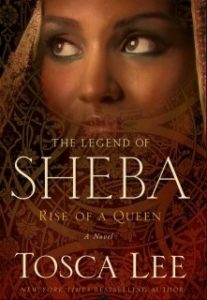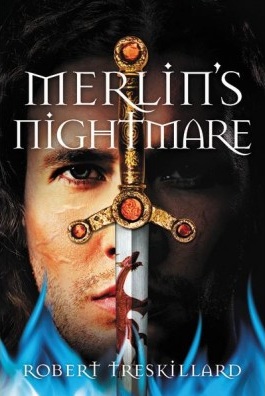Story Weariness
 When The Amazing Spider-man came out, I was a little bewildered. Hadn’t a movie maker just put out a very good version of Spiderman? I loved the first two movies in that franchise. They were sweet and adventurous at the same time. They gave some time to character building. And along comes another Spiderman, a re-do of the story I loved? Why? And really, nobody else could be Spiderman. Tobey Maguire was Spiderman.
When The Amazing Spider-man came out, I was a little bewildered. Hadn’t a movie maker just put out a very good version of Spiderman? I loved the first two movies in that franchise. They were sweet and adventurous at the same time. They gave some time to character building. And along comes another Spiderman, a re-do of the story I loved? Why? And really, nobody else could be Spiderman. Tobey Maguire was Spiderman.
In essence I was experiencing a little Spiderman weariness. I had the idea that once the story had been done well, it didn’t need to be done again. In fact, I didn’t want it to be done again.
Except . . . when I went to see The Amazing Spider-man, I fell in love with the Spiderman story all over again, in a new way, for different reasons. How was that possible?
The writers simply found ways to overcome my story weariness.
There are a few stories and their retellings to which I have a weariness aversion—Beauty and the Beast, Cinderella, Camelot—but surprisingly, I’ve found stories that do more than an adequate job and overcome my weariness. They’ve pulled me in and given me a love for the tale in a new way. Disney’s animated Beauty and the Beast did that for me. The movie Ever After (with Drew Berrymore) became one of my favorites.
But Arthur and his rise to power? I fell in love with the story first when my high school (a large school that did nothing half-hearted) presented the musical. I bought the soundtrack and memorized the songs. I loved that version of the story.
I also had a Classic Comic of the King Arthur story, a retelling of the one Sir Walter Scott had written, and now I read it with new understanding and appreciation. Besides The Lady in the Lake, there were other books such as The Once And Future King by T. H. White. Yes, I knew the Arthurian legend.
Camelot also became a movie, one of many, as it turns out, including Lancelot du Lac, Excalibur, Merlin, and King Arthur.
Imagine how uninteresting a TV series entitled Merlin seemed. Hadn’t everything that could be written about the Arthurian legend already been written? Well, no, actually not. This take, showing Merlin and Arthur’s connection as teens was strikingly different, and incredibly interesting as a tale of “how things came to be.”
But now, surely, there was nothing left to write about, no new way of looking at the oft-told story. And if there was yet one more version, surely it could not manage a fresh approach.
 I was wrong again. Despite my story weariness, author Robert Treskillard pulled me into his Merlin Spiral trilogy with Merlin’s Blade. Teenage Merlin is blind and in love. I was hooked. No other retelling showed Merlin in such human terms and so vulnerable.
I was wrong again. Despite my story weariness, author Robert Treskillard pulled me into his Merlin Spiral trilogy with Merlin’s Blade. Teenage Merlin is blind and in love. I was hooked. No other retelling showed Merlin in such human terms and so vulnerable.
I’ve had other instances of story weariness, which I guess I’ll define as familiarity with a story to the point that another rendition seems needless and unappealing.
One such was Christian fantasy writer Jonathan Roger’s debut novel, The Bark of the Bog Owl. The problem with that book for me was that I’d read or heard the story was a retelling of the Biblical King David’s life. Except it isn’t. I put aside my story weariness for one reason or another and stepped into the delightful world of the Feechie and life in the swamp.
I’ll admit “Biblical fiction” is almost sure to get me rolling my eyes and digging in with arms crossed and foot tapping. Some authors such as Liz Curtis Higgs and Francine Rivers have taken true stories from the Bible and fictionalized them, similar to what Jonathan Rogers did (without the speculative elements).
 Others like Tosca Lee (Iscariot, Havah, and due out in September, The Legend of Sheba: Rise of a Queen) and Elizabeth George Speare (Newbery Medal winner The Bronze Bow) retain the historical setting as well as the Biblical characters and storyline. This latter approach is much harder, in my opinion, because history is so unbending, and the Biblical witness so unimpeachable.
Others like Tosca Lee (Iscariot, Havah, and due out in September, The Legend of Sheba: Rise of a Queen) and Elizabeth George Speare (Newbery Medal winner The Bronze Bow) retain the historical setting as well as the Biblical characters and storyline. This latter approach is much harder, in my opinion, because history is so unbending, and the Biblical witness so unimpeachable.
What I’ve discovered is that my story weariness can be overcome. I may not want to read one more Arthurian legend, and yet, when I do, I can fall in love with the new version. But there are some things that draw me in no matter how resistant I might be initially.
First, the story needs to develop the character. I already know the events of the story, so I’m not reading to find out what happens—usually my strongest motive for reading fiction.
Second the story can deliver pre-history such as the movie King Arthur accomplished or that Treskillard’s Merlin Spiral has done. By showing what led the characters to the point of the well-known events, the story delivers new and imaginative material.
A third option is to show the story from the point of view of a lesser known, or an imagined, character or even from the point of view of the “villain.” Iscariot takes that tack.
In short, my story weariness can be overcome.
I suppose because “there are no new stories” all fiction bears the responsibility of overcoming reader familiarity, and therefore, the best writers always manage to overcome a reader’s expectations, but some, I think, take on a greater burden because they tackle, not only a well-known type of story, but a particular, existent story.
Those that succeed are well-played! Hats off if they can make me love their rendition, as Treskillard has done with Merlin’s Blade, Merlin’s Shadow, and Merlin’s Nightmare.
How about you? Do you experience story weariness? What authors, books, movies, or TV programs have succeeded in overcoming your familiarity of a known story and made you love the new version?































Or because the history/Bible nerds will chew you over for tweaking it, or especially in the case of the latter, tweaking it in a way that doesn’t line up with their headcanon. Sometimes either of those can be vague enough you have enough play with the specifics and details, which is handy for fiction writers.
Oh, and tangential thing about Biblical narratives I found interesting: http://isthatinthebible.wordpress.com/2014/08/02/the-men-who-killed-goliath-unraveling-the-layers-of-tradition-behind-a-timeless-tale-of-heroism/
It’s funny, though, how some of that multiplicity of King Arthur stories actually helped me get published … it showed the publisher that fans of the legends are indeed out there … especially the success of the Merlin TV series, which came out after I had already written MERLIN’S BLADE.
Robert, you’re absolutely right as you’ll see when you read some of the CSFF blog tour posts. Some readers particularly were drawn to this series because of their love of the legend. I get that. I love the Lone Ranger (and wish a good movie of that legend would be made) and Zorro and Robin Hood. I don’t know if I’d get tired of those.
With the Arthur stories, I haven’t read a single one I didn’t like, though some more than others. It’s a thing in my psyche, I guess. I’m thinking, well, I know that story, those characters. What could this book say that hasn’t been said? No doubt, the Merlin Spiral stands with the best that re-image the myth and make it fresh.
Becky
I agree, Rebecca! I put off reading the first 2 books in this series until I finally decided to read the third book. So I got them on my nook this summer and read them last month. I was hooked! The story drew me in and gave me a chance to say “Huh? I never thought about that.” I was intrigued by the story of how Morgana came to be, and the thought of a blind Merlin — ingenious!
The books are not short, easy reads by any means, but they definitely are worth spending the time reading. I have mixed feelings about the ending of Merlin’s Nightmare, but I’ll save those for my own review on my blog.
Well done, Mr. Treskillard!
Um… not to diminish Mr. Treskillard’s words, but blind Merlin has been done many times before. In all the tellings I’ve read, it’s pretty much canon.
My favorite Arthurian retelling remains Stephen Lawhead’s Pendragon Cycle. I think, because of my love for it, I do suffer from a form of storm weariness regarding Arthur and Merlin. It’s hard for me to accept another one. I watched the Merlin TV show, but never truly enjoyed it (the utter ridiculous twisting they had to undergo to remove every reference to Christianity made me laugh at the storytellers too much, for one thing).
Tim … you’re definitely right about other tellings having Merlin blind, Lawhead’s in particular. It was for those reasons, as well as the difficulty of writing from the perspective of someone blind, that I wholeheartedly did not want to make my Merlin blind.
The problem was that my story called for it. In short, it was the only way to make him immune to the enchantments of the blue flames emanating from the Druid Stone, thus making his greatest weakness his greatest strength.
Anyway, besides that point, I think you’ll find my story vastly different from Lawhead’s, yet I still stand on his shoulders, so to speak. The cool thing is that I was able to meet Stephen, and in a rare situation that may never happen again, he gave me some feedback on how to improve my novels as well as my writing, so I’m very grateful to him for that.
-Robert
That’s awesome.
And to be clear, I didn’t think you were being unoriginal. I was merely responding to Carol who appeared to be implying that blind Merlin was a new idea.
I would love to read your books, but my book budget is very limited these days. It’s on my list to check out eventually.